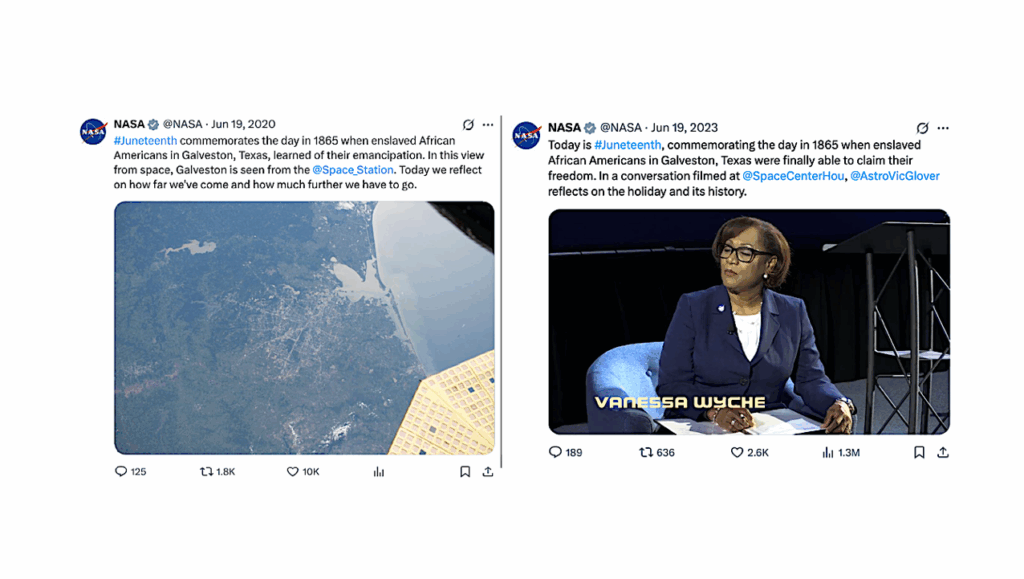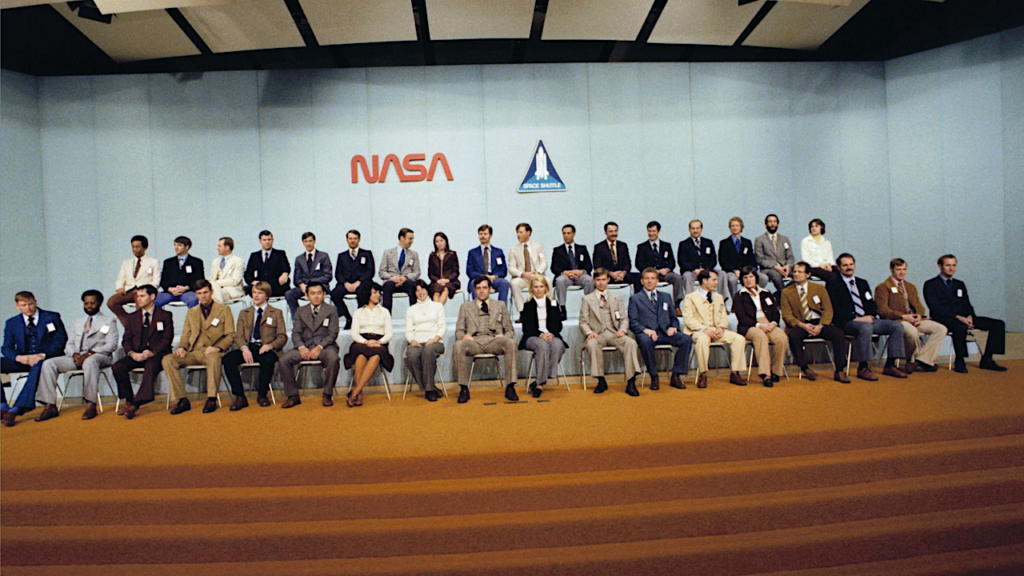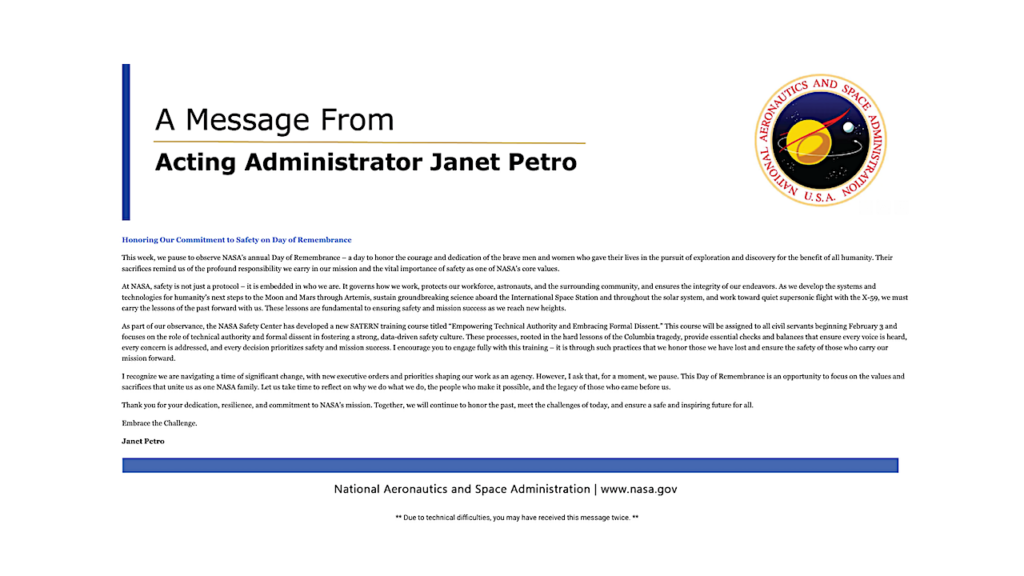The Army Is Closing A Library That NASA Paid For

Rocket scientists mourn end of Redstone Arsenal’s RSIC library, AL.com
“The Army is closing what its supporters say is one of the world’s great rocket science libraries in Alabama next week, and veterans of America’s space program are angry. … The decision to close was made early this year and posted on the aerospace blog Spaceref. But it is not believed widely known in Huntsville, where more than a few rocket Phds did their doctoral research among the library’s stacks. Unconfirmed reports have some current Army and NASA managers sending teams to the library to check out selected books and stack them in conference rooms and out-of-the-way places for saving. One project engineer posted in a group chat that RSIC “has been valuable to understand the basic equations of vibroacoustic modeling and see how others are using them. I don’t think these techniques are taught in college. In my job, historical data is absolutely a necessity.”
Announcement Regarding Redstone Scientific Information Center (RSIC) Transition to Virtual, SpaceRef
“The virtual RSIC will consist of online-only access to scientific and technical journals and ebooks, plus a repository for electronic versions of technical documents. The printed books and journals RSIC currently holds will be disposed of IAW applicable Army regulation; the printed technical documents (other than NASA documents) will be digitized and stored in the online document library. Access to online journal content should be available on 1 October; the electronic document repository will be brought online incrementally, with full availability by July 2021.”
 Keith’s note: I guess its time for everyone in Huntsville who is concerned about this to go to the library with a hand truck and check out as many books as they can – and not return them. Strange how NASA provided the vast majority of the funds to build this library and the Army gets to shut it down.
Keith’s note: I guess its time for everyone in Huntsville who is concerned about this to go to the library with a hand truck and check out as many books as they can – and not return them. Strange how NASA provided the vast majority of the funds to build this library and the Army gets to shut it down.









How sad. If the Army doesn’t want the library maybe the Space Corps should take it. They will need a library like it.
Sounds like what Stephen Harper did to government science libraries in Canada.
I do like real, physical books, so this is unfortunate. But it doesn’t sound like any information will be lost. The full article says:
“This action will have two primary impacts: 1) hard copies will no longer be available for circulation or copying (that is, no printed books, journals, or technical documents); and 2) library staff will no longer be available to assist with research questions or projects. Any library staff assistance will be limited to technical assistance only.”
If I understand it correctly, they are digitizing everything and putting it online. I have some concerns over digital libraries, largely about permanency, revisablity without the author or reader’s knowledge, and access. But the most important thing is to make sure the content is preserved, and it seems like they are doing that.
No, I don’t think they’re digitizing the current collection of physical books and journals. The reference to online access was for books and journals that are already available in digital form.
I have no clue, but this is America! and, right or left, everyone has a voice. =) I believe scanning every page of every book is unreasonable and would be impractical to do. Am I wrong? Or How wrong am I?
BTW, I think they should just move the books, at the expense of the receiving entity and keep them in shelves, to allow old school guys to come and page through them.
Based on reading lots of ebooks, I’d say scanning isn’t the expensive part. That’s tedious but requires little skill or effort. It’s when the scan (image format) is converted to text (or PDF or whatever) that you run into trouble. You get errors like “m” being converted to “r n” and things like that. That would be especially bad for technical works with equations (and Greek letters.) That takes proofreading by someone who understands the content, and that’s expensive.
As for giving the collection away and letting someone else pay for the shelf space, that’s the same problem with donating items to museums. You have to find someone with the money to do so, and someone likely to have money to keep curating the material indefinitely. That’s harder than it sounds.
After scanning and storing the image as a TIF file for archiving, you can then “print” the scanned image to PDF format so that anyone viewing it will be seeing the exact original document. This avoids any OCR errors while making the documents easily accessible to anyone using any PDF viewer. However it does make word searches a little more challenging when using standard PDF readers since essentially you are viewing a graphic file, but there are softwares that do OCR on the fly when viewing graphic files containing text so that you can do word searches. Also pages can’t be formatted to fit your screen since you are essentially viewing a series of photos. But that’s better than not having it at all and at least you know you are looking at the original document.
Turning the document into a searchable and editable PDF file can always be done later using the scanned image, as long as whoever does it is willing to do the proofreading which as you said is needed if they want to guarantee that there are no OCR errors. More likely someone quoting say a paragraph in a book will just run OCR on that one page and then proofread just that one paragraph before pasting it into their article.
Yes. I knew when I wrote that that PDF wasn’t the right term, but I was blanking on what the right term was. I guess I should have said image-based and text-based formats. But I am also old enough to see the higher data volume of image-based formats as a disadvantage.
Image files are certainly larger, but modern storage space and Internet speeds make it much less of an issue than it used to be. The convenience factor is probably the larger issue as it’s easier to read or search through an OCR converted book than one that is still in image format.
It says, “will consist of online-only access to scientific and technical journals and ebooks, plus a repository for electronic versions of technical documents… the printed technical documents (other than NASA documents) will be digitized and stored in the online document library.”
That last part sounds like scanning in the material which currently isn’t in electronic format.
Time for a Library raid… they’ll not miss the books!
This is tragic. RSIC always has updated science books. It’s a wonderful place and it saddens me greatly to see it go.
If NASA funded the library, then shouldn’t the books go to NASA if the library is closed ?
I think it should mean they offer the collection to NASA. But if NASA says they don’t have the money to do the job, then what?
So often the cost of programs that really affect people is less than rounding errors.
Yes it costs money to maintain, but if there is not a repository/curation plan for all this material what will happen to the hard won knowledge. Have we not learned from the Libraries of Alexandria and Hattusa?
Before we get too excited (or depressed) about this, the article does say, “The printed books and journals RSIC currently holds will be disposed of IAW applicable Army regulation…” I would assume IAW means “in accordance with.” So what are the applicable regulations? I would hope those regulations involve looking for a repository, curator, or someone willing and able to maintain the collection. I hope it doesn’t mean, “See if someone needs some otherwise unneeded, flammable material for training excursuses on fire fighting or the use of flame throwers.”
It means for someone to pick it up and dump it at the local land fill.
No, it means advertising the materials to other military/government libraries, and if that fails, the materials will be turned in to DLA Disposition Services (formerly known as DRMO, Defense Reutilization and Marketing Office) for sale to the civilian world. We do this periodically when weeding our collection, although mine is a general library, so we’re talking about old bestsellers and outdated nonfic.
I hope so. Unfortunately too many books and journals are ending up in recycling on the belief the digital versions will last forever and won’t disappear in some EMP event.
I’d love to see them digitized on the Internet Archive
RSIC was a very special place.. after retiring at the end of June after 37 years at NASA (MSFC, GRC, & HQ) this closing of a key facility is a sign of the current thinking by managers who were born after the CD music discs became reality. The new generation believes all one needs to do is to do a google search for relate to documents… These managers do not understand the value of research librarians nor do they understand that some research performed and documented is for government use ONLY and is not published elsewhere.
I had the great opportunity in my early days at MSFC early 80’s to actually have as my division leader a member of the German Paper-Clip team. This person would always go to RSIC to investigate what was on the cutting edge in the subject of aerodynamics or aero heating even when he was in his early 80s years of age.
It is just a sad day when some few key managers make decisions solely based upon some “Bean Counters” cost savings estimates. I assume that these managers never utilized the great librarians that were once a part of RSIC and now I assume have been forced out of their jobs.
There is a saying I was brought up with and it goes “Once it is gone, you cannot bring it back.” Reflecting on what I have witnessed in my 62 years of life in America -this before mentioned statement would cover both the demise of the Saturn V and also the demise of the General Motors Corp…
It’s just sad
I’m not entirely sure I’d blame the managers (although that’s usually a safe things to do on general principles.) The reasons you give for managers not valuing a library also apply to the users. It’s not just a matter of people “born after the CD music discs became reality”, but there is a growing tendency for people to do literature searches online and from their office. That’s true of researchers as well as managers. That means the number of researchers leaving their office and going to a physical library is declining. Managers, whatever their opinions of a physical library, will see that utilization of a facility is down by X% while operating costs have not changed (or worse, went up when renovations are needed.) That gets facilities shut down.
It’s going to be ok, although the details are murky. I called AFSPC History Office (currently dual-hatted as USSPACECOM History Office), who checked with their Army counterpart in Huntsville. AFSPC was willing to take the whole collection if it had to go, but the Army is maintaining the physical materials until they decide where to locate them: they may stay in Huntsville or they may go somewhere else like Peterson AFB, but they are not headed for the pulp mill.
As a librarian in Huntsville who has used RSIC for the last 3 decades, I would like to thank Lee Roop and Elaine Wooding for getting the word out about the RSIC Closure. I have witnessed MUCH concern since the article came out last Wednesday. Calls are coming in from all over the United States. I want to thank other DOD and NASA libraries who have offered to help with relocating the collection to their sites. BUT, I have a proposal to Huntsville, Alabama. The books and journals bought since Von Braun and Army began the RSIC (I have a pdf of the letter), were bought to serve our scientists here, in Huntsville. Von Braun and Morrow branded Huntsville as a research town back in the early 1960’s. Von Braun was instrumental in UAH becoming a science and technology university. Contractors moved here to support the Redstone Arsenal missions.
Huntsville, you deserve this collection HERE. The RSIC collection is part of OUR legacy. For all the NASA and DOD civil servant and contractor retirees, to those just now beginning their career here, these books and journals were hand-picked to serve OUR engineers, OUR missions,OUR innovations. Just this last week Air Force General John E. Hyten, a native of Huntsville, was confirmed by the U.S. Senate to serve as the next vice chairman of the U.S. Joint Chiefs of Staff. General Hyten went to Chaffee Elementary School, the same school my children went to. We have a town that educates, that inspires, that develops our leaders of the future.
I do not have all the answers, but I know that we can make this happen. From my research I know that RSIC can sign over the books and journals to MSFC, and MSFC has the option to donate the collection to a non-profit. My dream would be for Jeff Bezos, who sees the value in Huntsville by having Blue Origin here, to accept the collection for one of his non-profits, and create a world-class science and technology library here in Huntsville for public use, not only for his company, but for all of the rocket scientists here, including those who are just beginning kindergarten in Huntsville. So what, I dream BIG! Who were all those at the Blue Origin groundbreaking? Let’s break out those shovels again to create a World-class Science and Technology Library here in Huntsville. It starts with acquiring the RSIC collection, but will ensure that Von Braun’s research town keeps up with competition. We have enough brilliant people here in Huntsville to come up with a solution to keep the collection here. This will bring aspiring students to our universities, and those seeking a Ph.D. to Huntsville to work study. It gives Huntsville another selling point to bring contractors and civilians for jobs, and tourists who are authors, researchers, historians.
Since the announcement of the RSIC closing on April 2, 2019, I have learned that there are no villains in this story. Everyone has made the best decisions they could, with the information, physical space, and budget limitations that they have. Huntsville, we have the opportunity to not fall victim to this situation. This is a golden opportunity to not lose a single document that is part of our history. What do you think?